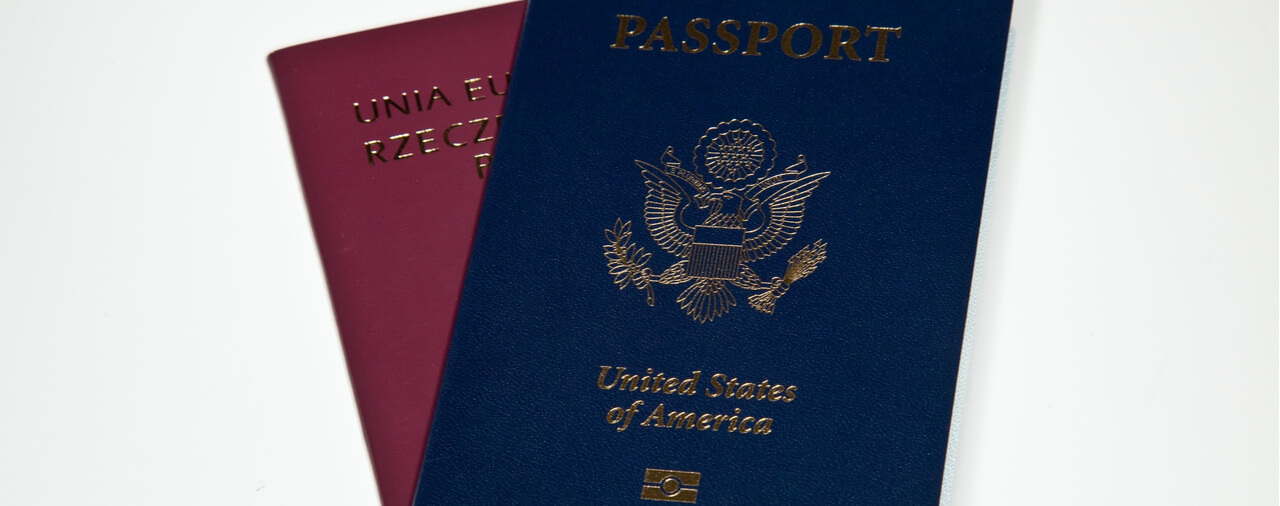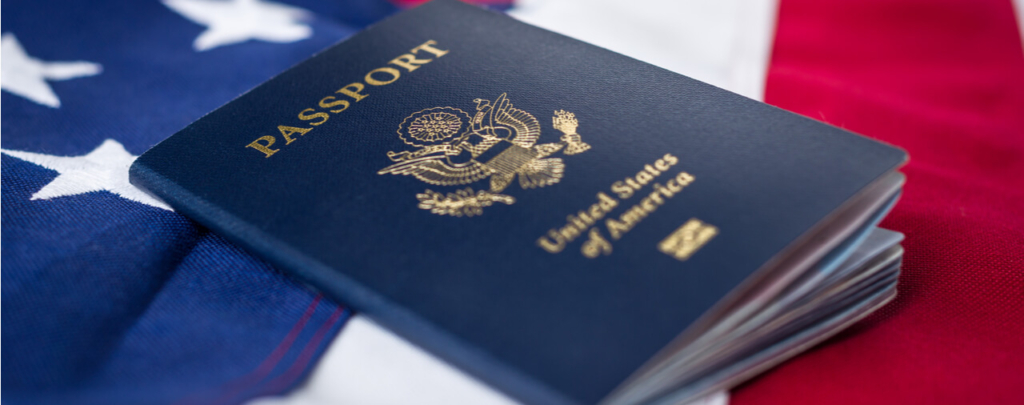The questions that arise:
Why is dual citizenship is discussed?
Can I retain dual nationality?
Will I lose U.S. citizenship if I acquire other nationality?
Can I become a U.S. citizen without losing nationality of my country of origin?
Will the law penalize me for becoming national of another country while remaining U.S. national?
This and many other similar questions relating to dual citizenship arise in several important contexts and keep popping up in question-posts on legal blogs like AVVO, LawQA and here on MyAttorneyUSA.
What is dual Citizenship / Nationality in the USA?
There are as many nationalities on this planet as there are countries. The concepts of nationality and citizenship are synonymous and refer to the same kind of a relationship between and individual and the country. Merriam Webster Dictionary (MWD) defines nationality as membership in a particular nation. Citizenship is defined in by MWD as a status of being such member. In this regard, the two concepts closely overlap. As the United States is a popular destination for many immigrants to seek permanent residency and eventually citizenship, this country is inevitably subjected to situations where citizens of other countries seek and acquire U.S. nationality through naturalization. This is the first and foremost source of exposure of the American immigration system to a situation when an American citizen is also a citizen of another country. Naturally born U.S. citizens may also be born into citizenship of another country or countries, thus creating another setting when the same issue arises. Finally, U.S. citizens, whether born or naturalized, may seek to acquire citizenship of another country. These situations create an important and somewhat controversial concept known as dual nationality.
Until relatively recently, American Law clearly disfavored dual nationality. The primary reason for which dual nationality was disfavored had to do with the fact that this phenomenon also created various complications where people were simultaneously treated by the laws of different countries as citizens of these respective countries. As the laws of these countries not always and most often did not coincide, various difficulties and irregularities inevitably arose. To distant itself from this problematic area, the U.S. Government has historically taken a position, which disfavored dual citizenship and was known in the past for causing American citizens to lose their American nationality upon acquisition of that of another country. This, however, is no longer true. In fact, it has not been true since the late sixties. The situation has drastically changed in more recent years, in large part because of the several landmark decisions of the U.S. Supreme Court, which made it very difficult for the Executive Branch to restrict acquisition of dual citizenship, or carrying out of the policy of disfavoring dual citizenship. At the same time, dual nationals also make their lives more susceptible to change in their countries of nationality as they are subject to the laws of both countries. While, as discussed elsewhere on these pages, there are many benefits that accompany dual nationality, there are as many responsibilities including paying taxes in both countries and serving in the military.
Loss of U.S. Citizenship / Nationality
Following these landmark Court decisions, discussed in detail in this publication, the situation as it stands today is such that allowing dual citizenship has become a norm rather than exception in the U.S. immigration law and policy. Hence, loss of a foreign citizenship upon naturalization is, for the most part, no longer a matter of U.S. law. Instead, it is now determined mostly by the laws of the country, whose citizenship is called into question by the naturalization of the new U.S. citizen. In this respect, several situations are still possible. The most troubling aspect of it is that U.S. naturalization may still, in some situation, cause complete loss of the foreign citizenship by the operation of the law of the foreign country without any additional steps taken by the new U.S. citizen. Individuals seeking naturalization in the United States should keep this in mind and think it though before seeking naturalization.
The concept of “expatriation” or loss of U.S. nationality refers to the loss of citizenship status properly acquired though one of the following:
1. birth in the United States;
2. birth abroad to U.S. citizen parents, or
3. naturalization.
As a result of several constitutional decisions, current version of the INA §349(a) [see article], the provision of the Immigration and Nationality Act (“INA”), that addresses this issue, provides that U.S. nationality is lost only when the U.S. citizen commits one of the specified acts described in the INA §349 [see article], while doing so voluntarily and with the intent to relinquish his or her U.S. nationality. Thus, U.S. nationality is not lost when one of these requirements is lacking, making loosing U.S. nationality an exception rather than the rule.
Any act or acts committed by the U.S. national, which is not specifically mentioned in INA §349 [see article] do not result in expatriation, thus resolving the old problem of acquisition of the foreign nationality by birth or operation of law. Neither of the two now causes expatriation.
Acts relevant to expatriation
INA §349 [see article] lists two acts, which, if committed by a U.S. national, may be relevant to the issues of dual nationality and expatriation.
1. Obtaining naturalization in a foreign country. U.S. citizen seeks naturalization in a foreign state, while doing so upon his or her own application or upon an application filed by a duly authorized agent, after having attained the age of eighteen years. Such naturalization is relevant to the issue of expatriation only if it involved a formal declaration of allegiance (by oath or affirmation or otherwise) to that foreign state or its political subdivision. If such formal declaration was not made voluntarily, it is not sufficient to cause expatriation because only voluntary actions of the citizen may cause loss of the U.S. Citizenship under the Constitutional Due Process standard that protects and guaranties the freedom of choice American Citizens enjoy. INA also protects this freedom of choice and requires voluntary action on the part of the citizen before the law could recognize loss of citizenship.
2. Taking an oath or making an affirmation or other formal declaration of allegiance to a foreign state or a political subdivision thereof, after having attained the age of eighteen years. This provision is somewhat redundant with the first one to the extent that it still require an affirmative action.
3. Entering, or serving in, the armed forces of a foreign state if:
3.1. such armed forces are engaged in hostilities against the United States, or
3.2. such persons serve as a commissioned or non-commissioned officer
What is important in this regard is the fact that serving in a foreign military on and of itself is not relevant to expatriation. Only when such armed forces are engaged in hostilities against the United States or the citizen accepts an officer’s position it become relevant.
4.1.Accepting, serving in, or performing the duties of any office, post, or employment under the government of a foreign state or a political subdivision thereof, after attaining the age of eighteen years if he has or acquires the nationality of such foreign state; or
4.2.Accepting, serving in, or performing the duties of any office, post, or employment under the government of a foreign state or a political subdivision thereof, after attaining the age of eighteen years for which office, post, or employment an oath, affirmation, or declaration of allegiance is required; or
5. Making a formal renunciation of nationality before a diplomatic or consular officer of the United States in a foreign state, in such form as may be prescribed by the Secretary of State; or
6. Making in the United States a formal written renunciation of nationality in such form as may be prescribed by, and before such officer as may be designated by, the Attorney General, whenever the United States shall be in a state of war and the Attorney General shall approve such renunciation as not contrary to the interests of national defense;
7. Committing any act of treason against, or attempting by force to overthrow, or bearing arms against, the United States, violating or conspiring to violate any of the provisions of section 2383 of title 18, United States Code [see article], or willfully performing any act in violation of section 2385 of title 18, United States Code [see article], or violating section 2384 of said title by engaging in a conspiracy to overthrow, put down, or to destroy by force the Government of the United States, or to levy war against them, if an d when he is convicted thereof by a court martial or by a court of competent jurisdiction.
Hence, any acts potentially leading to expatriation are not taken into account when performed under the circumstances involving duress, mistake, or incapacity, which all negate a free choice. U.S. courts have generously accepted claims of coercion where the U.S. citizen’s actions were compelled by fear of injury, retaliation, imprisonment, fine, economic deprivation, and like consequences.
Erroneous or misleading advice by individuals acting in official capacity on behalf of the U.S. Government or acting under the color of law, who provided erroneous advice or explanation to the citizen, have also been held negating freedom of choice and as such not to cause expatriation. Individual who is unaware of a claim to U.S. citizenship at the time that an expatriating act is performed likewise does not have an opportunity to make a free choice and as such did not commit such act voluntarily.
Maturity. Who is a minor ?
Maturity is another important requirement for expatriation. Recognizing centuries long legal tradition, U.S. Law does not consider acts of minors as sufficiently mature to rise up to a voluntary action. In this context, the question is always — who is a minor? For the most part, immigration law subscribes to widely recognized common law notion that a minor is an individual under the age of 21. However, in some specific circumstances, the age is lowered to 18 or even 16 years.
For instance, a step parent-child relationship must form before the child attains the age of 18 and not 21, for either the child or the stepparent to derive any immigration benefit from their relationship. While “child” is defined in the INA §101(b)(1) to mean an “unmarried person under twenty-one years of age,” the subparagraphs of this section expend this definition to also include children born out of wedlock (INA §101(b)(1)(A)); stepchildren when the marriage between the child’s biological parent and the stepparent occurred prior to the child’s attaining the age of 18 (INA §101(b)(1)(B)); properly legitimized children (INA §101(b)(1)(C) and adopted children when the child had been properly adopted prior to attaining the age of 16 (§101(b)(1)(C)).
Paragraphs (1), (2), (4) of INA §349(a) [see article] specifically fix the age of maturity at 18. In addition, INA §351(b) [see article] fixes the age of maturity at 18 for paragraphs (3) and (5) of INA §349(a) [see article] thus completing the description of the situations when a “minor” means a person under the age of 18 for purposes of the INA §349 [see article]. The text of the INA §351(b) [see article] is as follows:
A national who within six months after attaining the age of eighteen years asserts his claim to United States nationality, in such manner as the Secretary of State shall by regulation prescribe, shall not be deemed to have lost United States nationality by the commission, prior to his eighteenth birthday, of any of the acts specified in paragraph (3) and (5) of section 349 of this title [see article].
However, It is important to note that these special provisions, lowering the age of minority to 18 years, do not apply to acts of expatriation not specifically mentioned in the INA §349(a) [see article], and the age of maturity in relation to such other acts of expatriation generally continues to be the common-law standard of 21 years.
Intent to relinquish
Not only must the U.S. citizen perform an expatriating act voluntarily, but he or she must also intend to relinquish U.S. citizenship as a result of such voluntary acts. Prior to the landmark decision in Afroyim v. Rusk 387 U.S. 253, 87 S. Ct. 16601118 L. Ed. 2d 757 (1967) [see article], the “intent to relinquish” requirement was interpreted by various courts in objective terms, so that persons who voluntarily performed acts of expatriation designated by the INA §349(a) [see article] were deemed to have lost their citizenship, irrespective of whether they intended to surrender it.
However, in Afroyim [see article], U.S. Supreme Court held that relinquishment of U.S. citizenship had to be voluntary and declared to the world the very words, which now guarantee that U.S. Citizens would never lose their U.S. nationality unless they indeed intend to do so:
In our country the people are sovereign and the Government cannot sever its relationship to the people by taking away their citizenship. Our Constitution governs us and we must never forget that our Constitution limits the Government to those powers specifically granted or those that are necessary and proper to carry out the specifically granted ones.
We hold that the Fourteenth Amendment was designed to, and does, protect every citizen of this Nation against a congressional forcible destruction of his citizenship, whatever his creed, color, or race. Our holding does no more than to give to this citizen that which is his own, a constitutional right to remain a citizen in a free country unless he voluntarily relinquishes that citizenship.
Although Afroyim [see article] was not a unanimous decision, nine years later, the U.S. Supreme Court in Vance v. Terrazas 444 U.S. 252, 100 S. Ct. 5401162 L. Ed. 2d 461 (1980) [see article] unanimously reaffirmed the principle stated in Afroyim [see article].
Consequently, current version of the INA §349(b) [see article] places the burden of proof squarely with the challenger when it comes to the loss of U.S. nationality. Under the law, the challenger must establish such a claim by a preponderance of the evidence. While, the law treats any person who commits or performs, or who has committed or performed, any act of expatriation as presumed to have done so voluntarily, such presumption may be and often is rebutted upon a showing, by a preponderance of the evidence, that the act or acts committed or performed were not done voluntarily.
Terrazas [see article] Court unanimously upheld constitutionality of these provisions of the law but found, despite the government arguments to the contrary, that the statutory presumption was “applicable only to the voluntariness of the expatriating act itself.” The Court held that the presumption did not apply to the intent to relinquish, which, the Court said, the government needed to prove separately and with preponderance of the evidence, while no presumption was attached.
Left with no choice, the Congress subsequently gradually adopted the Terrazas [see article] principle starting with the Immigration and Nationality Act Amendments of 1986, Pub. L. No. 99-653, §18, 100 Stat. 3655. In these Amendments, the Congress specified that the acts of expatriation listed in the Immigration and Nationality Act would terminate citizenship only if voluntarily performed “with the intention of relinquishing United States nationality.” Later, in the Immigration Technical Corrections Act of 1988, Pub. L. No. 100-25, §8(r), 102 Stat. 2609, 2618, the Congress expended the reach of the Amendments by providing that the 1986 amendments “shall apply to actions taken before, on, or after November 14, 1986.”
From that point on, any foreign naturalization of the U.S. national could only become relevant to the issue of expatriation when it was coupled with an oath, renouncing citizen’s prior allegiances. Such oath could come in derogation of undivided allegiance to the United States, thus generating, at least in some instances, an inference of intention. Addressing this issue, the Board of Immigration Appeals (BIA), highest administrative tribunal charged with reviewing decisions of immigration judges and setting administrative rules and precedents in immigration context, has ruled in a precedent decision that naturalization in a foreign state, coupled with an oath of allegiance to that state, could give rise to a highly persuasive, though only an inference that U.S. citizenship was abandoned. BIA concluded that such inference might be rebutted with proof that the citizen did not intend thereby to relinquish his or her U.S. citizenship (Matter of Wayne [PDF version]).
These developments dramatically changed the stance of the U.S. Government on this issue. In a 180-degree reversal of its prior policy, U.S Department of State (DOS) issued a policy memorandum in September of 1990, explaining its new policy as applied to the dual citizenship in light of then fairly recent Court rulings. In the memoranda, the Department of State made it clear that its new policy would presume a citizen intended to retain U.S. citizenship in most circumstances and identified the following situations when such presumption would apply:
1. U.S. citizen was naturalized in a foreign country
2. U.S. citizen took a routine oath of allegiance, or accepted non-policy level employment with a foreign government.
The Department declared that the U.S. citizen needed not submit a statement or evidence of his or her intent to retain U.S. citizenship prior to the commission of a potentially expatriating act because such intent would be presumed. In so doing the Department’s new policy extended the benefit of the presumption to expatriating acts listed in the INA §349 [see article] with the exception of the following situations:
1. U.S. citizen formally renounces U.S. citizenship before a consular officer;
2. Took a policy level position in a foreign state;
3. Was convicted of treason; or
4. Performed an act made potentially expatriating by statute accompanied by conduct which is so inconsistent with retention of U.S. citizenship that it compels a conclusion that the individual intended to relinquish U.S. citizenship.
DOS new policy obligated consulate officers to carefully investigate all the evidence in all situations but that of a formal renouncement of the citizenship, before making a conclusion that the citizenship was indeed lost. In making such an investigation, the consulate officers are required to take into account all the actions by the citizen which suggest his or her intention to retain U.S citizenship including but not limited to:
1. contemporaneous written statement confirming the citizen’s desire to retain U.S. citizenship, submitted to a U.S. consulate or the DOS;
2. continuous payment of U.S. income taxes;
3. obtaining U.S. passports and
4. maintaining or retaining property and other ties to the United States after the expatriating act took place.
DOS’s new policy also made it clear that such investigation was only necessary in cases when presumption of desire to retain the citizenship was not applicable.
Why to even have a dual Citizenship / Nationality ?
Wars, turmoil and economic receptions of the 20’th century have caused millions of people to relocate, around the world, seek other nationalities and places of residence. As a result the traditional mistrust of dual nationality and disfavor of it has washed way being replaced by the economic realities of the contemporary times. For instance, creation of the State of Israel and then of the European Union made many people to relocate changing their nationality. Israeli law of return insures Israeli citizenship to every Jew who asks for without requiring of abolishing the nationality the applicant might have and without any need for naturalization process. Many countries of the European Union do not require much of their new inhabitants from other member countries in order to obtain nationality of the country of current residence. This is how many people from the Eastern European counties become citizens of Great Britain, France or even Germany, despite Germany’s very strict naturalization requirements.
Germany offered its citizenship to just about any Jew who cared to apply for it in an attempt to restore pre-WWII level of Jewish population, without requiring these new citizens to relinquish their former nationality. Australia does not require its newly naturalized citizens to relinquish the nationality of their native country, thus contributing to the number dual citizenship holders in the world. Native-born Australians, however, cannot become dual citizens of another country without giving up their Australian citizenship. Canadian law also abandoned its disfavor of dual nationality as well as a requirement to abolish all citizenship prior to and as a prerequisite to naturalization as a Canadian citizen, which was the requirement prior to 1973, when Canadian Supreme Court in Ulin v. The Queen, 35 DLR(3d) 738, held that the renunciation language was contrary to the law, since Canadian law did not authorize such a requirement.
Dual nationality is also a matter of convenience and economic advantage as it facilitates freedom of travel and employment by eliminating unnecessary bureaucratic requirements and permits.
Some countries literally “sell” their citizenship to generate income by making it possible to acquire citizenship by investing amount certain into the local economy or simply paying the fee to the government of the country in question. Their lenient tax policies and tax havens as well as neutral political positions, make such investments worthwhile. Belize’s Economic Citizenship Program and similar programs in the Dominica are examples of such policies. This “purchase” of nationality usually does not require renunciation of a former nationality thus also creating dual citizenship.





